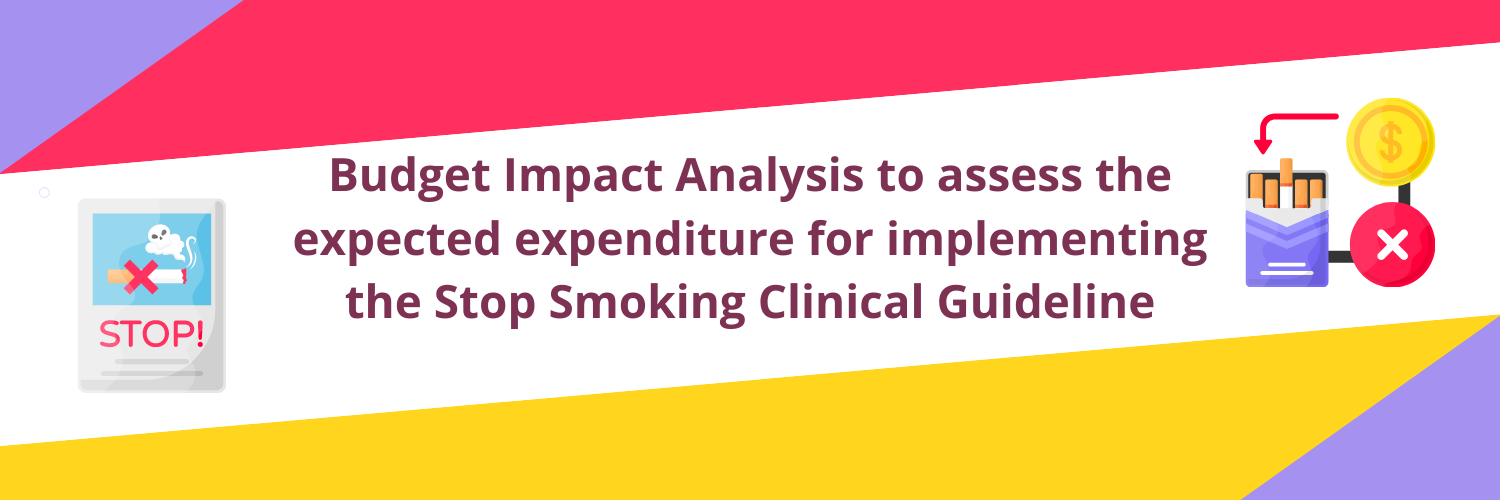Stop Smoking National Clinical Guideline

The National Clinical Effectiveness Committee (NCEC) requires consideration of evidence on both the clinical and cost-effectiveness of guideline recommendations in the development of all National Clinical Guidelines (NCGs) in Ireland. The completion of a budget impact analysis (BIA) based on implementation of the NCG is also required. The role of the HRB-CICER team is to independently review the evidence and provide scientific and methodological support in the development, by the Guideline Development Group (GDG), of these evidence-based NCGs.
The NCG for Stop Smoking has been developed to provide evidence-based recommendations for healthcare professionals regarding the management of smoking cessation among the general adult population, pregnant women and adults who use secondary mental health services.
To support the development of the NCG, the HRB-CICER team conducted a BIA to quantify the cost and resource implications to the Health Service Executive (HSE), following implementation of the NCG.
In 2013, the Department of Health published the Tobacco Free Ireland Policy (TFIP). The objective is to promote and progress towards a tobacco free society, with a target to achieve a smoking prevalence rate of less than 5% by 2025. Also in 2013, Healthy Ireland – A Framework for Improved Health and Wellbeing was published and designed to bring about real, measurable change in health and wellbeing based on an understanding of the determinants of health. Tobacco Free is one of seven health and wellbeing policy priority programmes of Healthy Ireland, aimed at reducing the burden of chronic disease in Ireland.
In response to the publication of the TFIP and Healthy Ireland, the Tobacco Free Ireland Programme was established in 2016, with a remit to mobilise the health services to improve health and wellbeing and play its part in the achievement of a reduction in smoking prevalence to less than 5% of the population by 2025. In recognising these commitments, the development of the Stop Smoking NCG was prioritised in the HSE’s TFIP Programme Plan 2018-2021.
The BIA aimed to quantify the cost and resource implications of addressing the needs of three target groups in their attempt to quit. The groups were:
- those people aged 18 years and over who smoke in the general population
- those who smoke in pregnancy (of any age)
- those who smoke and use secondary mental health services.
Based on the NCG recommendations and implementation plan, the resource implications comprise:
- new stop smoking advisors to enable the provision of enhanced behavioural support services to smokers who set a quit date
- the provision of increased pharmacological support to aid successful quit attempts
- the provision of advice relating to the risk of second hand smoke to all pregnant women
- the provision of breath carbon monoxide testing and follow-up advice to all pregnant women
- the appointment of national coordinators for the Stop Smoking Programme.
The Budget Impact Analysis was conducted in accordance with the HIQA guidelines for budget impact analysis and economic evaluation in Ireland.